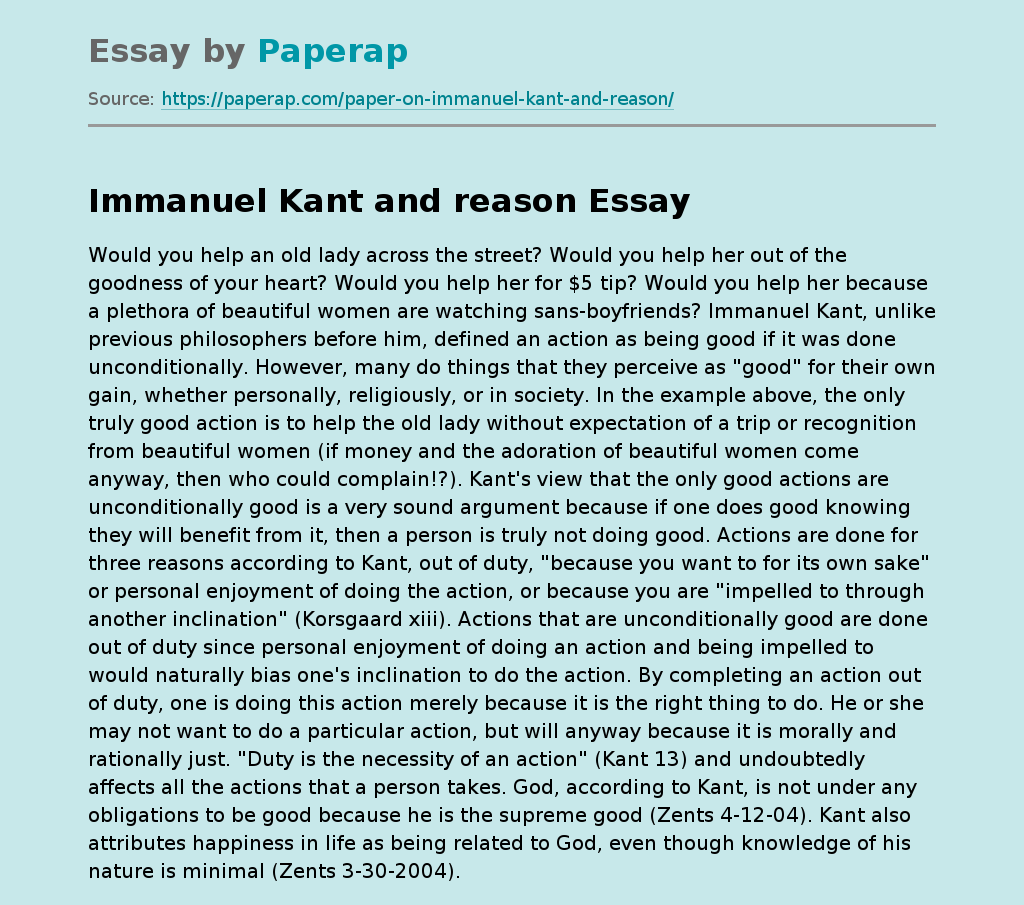Immanuel Kant and reason
The following sample essay on “Immanuel Kant and reason”. Kant’s view that the only good actions are unconditionally good is a very sound argument because if one does good knowing they will benefit from it, then a person is truly not doing good.
Would you help an old lady across the street? Would you help her out of the goodness of your heart? Would you help her for $5 tip? Would you help her because a plethora of beautiful women are watching sans-boyfriends? Immanuel Kant, unlike previous philosophers before him, defined an action as being good if it was done unconditionally.
However, many do things that they perceive as “good” for their own gain, whether personally, religiously, or in society. In the example above, the only truly good action is to help the old lady without expectation of a trip or recognition from beautiful women (if money and the adoration of beautiful women come anyway, then who could complain!?). Kant’s view that the only good actions are unconditionally good is a very sound argument because if one does good knowing they will benefit from it, then a person is truly not doing good. Actions are done for three reasons according to Kant, out of duty, “because you want to for its own sake” or personal enjoyment of doing the action, or because you are “impelled to through another inclination” (Korsgaard xiii). Actions that are unconditionally good are done out of duty since personal enjoyment of doing an action and being impelled to would naturally bias one’s inclination to do the action.
By completing an action out of duty, one is doing this action merely because it is the right thing to do. He or she may not want to do a particular action, but will anyway because it is morally and rationally just. “Duty is the necessity of an action” (Kant 13) and undoubtedly affects all the actions that a person takes. God, according to Kant, is not under any obligations to be good because he is the supreme good (Zents 4-12-04). Kant also attributes happiness in life as being related to God, even though knowledge of his nature is minimal (Zents 3-30-2004).
Immanuel Kant and reason. (2019, Oct 09). Retrieved from https://paperap.com/paper-on-immanuel-kant-and-reason/

